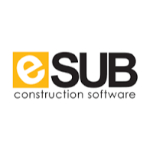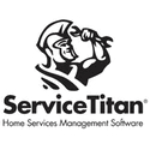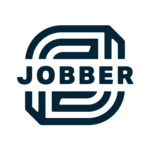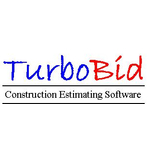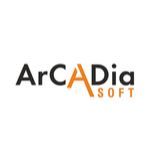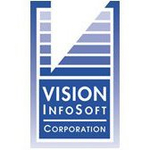TechnologyCounter provides genuine, unbiased real user reviews to help buyers make informed decisions. We may earn a referral fee when you purchase through our links, at no extra cost to you.
List of 15 Best Electrical Contractor Software
Showing 1 - 15 of 19 productsESUB is a software designed to streamline project management for construction companies. With simplified document tracking, efficient timekeeping, and seamless communication, ESUB enables construction teams to collaborate effectively and complete pro...Read ESUB Reviews
PENTA ERP is a software solution designed for businesses of all sizes to manage their entire operation with ease. From project management to accounting, PENTA offers a seamless integration of all essential functions for increased efficiency and produ...Read PENTA ERP Reviews
ServiceTitan is a tool for service businesses looking to streamline and elevate their operations. From managing schedules and dispatching technicians to invoicing and analytics, this all-in-one software simplifies every aspect of running a successful...Read ServiceTitan Reviews
Profit Rhino is a software solution for the HVAC, plumbing, and electrical industries. This innovative platform streamlines business operations and increases profitability by providing accurate and customizable pricing, inventory management, and serv...Read Profit Rhino Reviews
Jobber, the all-in-one solution for small and medium-sized businesses. Developed with the needs of entrepreneurs in mind, Jobber streamlines operations and simplifies daily tasks. With its user-friendly interface and powerful features, Jobber helps b...Read Jobber Reviews
TurboBid is a estimating software designed specifically for the electrical industry. With its user-friendly interface and powerful features, TurboBid streamlines the estimating process, saving you time and increasing accuracy. Say goodbye to tedious...Read TurboBid Reviews
Kickserv is a user-friendly service management platform designed to streamline and organize all aspects of your business, from scheduling and dispatching to invoicing and customer communication. With its intuitive interface and powerful features, Kic...Read Kickserv Reviews
ArCADia-ELECTRICAL INSTALLATIONS is a solution for all your electrical installation needs. This powerful software offers advanced features tools for efficient design and analysis of your projects. With its user-friendly interface and extensive librar...Read ArCADia-ELECTRICAL INSTALLATIONS Reviews
SnapSuite is a is a software designed to enhance your business operations. With its advanced features and user-friendly interface, SnapSuite simplifies tasks and boosts productivity. Say goodbye to complicated processes and hello to streamlined effic...Read SnapSuite Reviews
SafeGrid Earthing is a software designed to provide effective earthing solutions for all types of electrical systems. With advanced technology and state-of-the-art features, SafeGrid Earthing offers unparalleled safety and reliability, making it the...Read SafeGrid Earthing Reviews
Jobox is a software designed to simplify your work processes and boost productivity. With its user-friendly interface features, Jobox is the perfect solution for streamlining tasks and improving efficiency. Say goodbye to complicated work methods and...Read Jobox Reviews
RazorSync is a solution for all your business management needs. With its user-friendly interface is a features, RazorSync streamlines and simplifies day-to-day operations, helping you save time and maximize productivity. Say goodbye to the hassle of...Read RazorSync Reviews
AroFlo is a solution to streamlining your business operations and boosting productivity. With user-friendly features tools, AroFlo offers a seamless experience for managing tasks, team collaboration, and project management. Say goodbye to manual proc...Read AroFlo Reviews
Wintac is a software designed for the service industry that streamlines and simplifies daily operations. With its user-friendly interface, customizable features, is a scheduling and dispatch tools, Wintac is the go-to solution for small and medium-si...Read Wintac Reviews
Electrical Bid Manager is a solution for managing and streamlining electrical bids. With its user-friendly interface features, this software provides seamless organization, collaboration, and tracking of bids. Designed specifically for electrical con...Read Electrical Bid Manager Reviews
- What Is Electrical Contractor Software?
- Top Reasons Why Businesses Need Electrical Contractor Software?
- What Are the Top Key Features of Electrical Contractor Software?
- What Are the Top Benefits of Electrical Contractor Software?
- What Are the Steps to Choose the Right Electrical Contractor Software?
- What Are the Types of Electrical Contractor Software for Different Industries?
- What Are the Technology Trends for Best Electrical Contractor Software?
- What Are the Deployment Options for Electrical Contractor Software?
What Is Electrical Contractor Software?
Electrical contractor software is software used by electrical contractors to assist run their business efficiently. This software can help them automate procedures, track and manage their work orders, maintain their inventory, make invoices and other data, manage their customer interactions, and more.
Generally, electrical contractor software helps streamline the business procedures of an electrical contractor and provide them more visibility and control into their firm. As an intern, you can help to make sure that all information is accurate and updated, as well as aid with project management, by assisting arrange documents, quotations, and other information connected to each job.
Overall, electrician contractor software can considerably increase the productivity of an electrical contractor, and can save them time and money.
Top Reasons Why Businesses Need Electrical Contractor Software?
1. Electrical contractor software facilitates the optimization of an electrical contractor's workflow through the provision of a user-friendly solution for the effective management of customers, projects, and financial aspects.
2. One of the benefits of this system is its ability to enhance customer relationship management through streamlined task scheduling and automated customer follow-up processes.
3. Automated work costing and invoicing functionalities effectively mitigate the occurrence of manual calculation errors and expedite the billing process.
4. The utilization of electrician contractor software has the potential to enhance the process of documenting and tracking the various parts and materials employed in job operations.
5. The utilization of this technology facilitates the immediate determination of prices and monitoring of labor expenses, hence enhancing the ability of contractors to effectively oversee and control their expenditures.
6. The platform offers access to a diverse range of informative reports that display essential performance indicators for the contractor's enterprise.
7. The platform provides management solutions that assist electrical contractors in effectively adhering to current industry laws and safety standards.
8. The system possesses the capability to seamlessly interface with the third-party software and systems utilized by the contractor, hence enhancing operational efficiency.
9. The software incorporates functionalities for the creation of personalized invoice templates and the provision of online payment alternatives.
10. Electrician contractor software has the capability to enhance customer assistance through the provision of integrated ticketing and help desk management capabilities.
11. The utilization of this technology streamlines the procedure of monitoring inventory levels and materials at job sites.
12. Electrical contractor software facilitates the efficient allocation of tasks to electricians, so enabling the contractor to maintain a comprehensive understanding of the specific responsibilities assigned to each individual for every assignment.
13. The incorporation of a messaging system enhances the level of contact between the contractor and clients.
14. The automation of administrative operations aids in the reduction of time allocated to manual duties.
15. Electrician contractor software serves to mitigate the potential for fraudulent activities and non-compliance with legal obligations.
What Are the Top Key Features of Electrical Contractor Software?
Top Key Features of Electrical Contractor Software:
1. Project Management: The project progress is monitored, deadlines and resources are managed, estimations are generated, and tasks are assigned to staff.
2. Real-time Invoicing: The best electrician software facilitates the automation of invoicing and billing processes, including the functionality to accept online payments and process payments at physical locations.
3. Site Surveys: This electrician business management software offers functionalities for capturing site information, generating site surveys, and personalizing service and installation requests.
4. Scheduling: This system facilitates the automation of work order scheduling, the allocation of field technicians, the booking of customer appointments, and the tracking of job progress.
5. Inventory Management: The best electrician software monitors the inventory levels of vendors, warehouses, and contractors, maintains current records, and produces precise reports.
6. Mobile App Integration: Enables field technicians to conveniently access job assignments, retrieve inventory information, facilitate payment transactions, and promptly update the status of ongoing tasks while on the move.
7. Account Management: The individual oversees the administration of employee accounts, including the management of roles and permissions, as well as customer accounts and payment processing.
8. Analytics &Reporting: The best software for electricians application facilitates the generation of comprehensive customer and financial reports, while also providing the capability to monitor performance using metrics that may be tailored to individual preferences.
9. Communication Management: Facilitates seamless communication among contractors, consumers, and vendors via electronic mail, text messaging, and telephone conversations.
10. Security & Access Management: Electrical contractor management software offers robust authentication mechanisms to ensure data security and enforce access restrictions only for authorized personnel.
What Are the Top Benefits of Electrical Contractor Software?
1. Increase Efficiency: Electrician contractor software offers automated technologies that facilitate the enhancement of process efficiency. This encompasses several tasks such as project scheduling and monitoring, customer relationship management, financial transactions, and job documentation.
2. Streamline Communication: Electrical contractor software facilitates the integration of various stakeholders, including departments, suppliers, contractors, and clients. The utilization of this technology facilitates efficient group communication and collaboration, leading to increased productivity and successful project management.
3. Improved Customer Relationship Management: Electrical contractor software facilitates the monitoring and management of contacts, customer orders, and service requests. This enhanced customer relationship management system enables the provision of superior customer care and the delivery of more tailored experiences.
4. Reduce Paperwork: Electrical contractor software facilitates the consolidation of information into a singular centralized repository, hence mitigating the need for excessive paperwork and expediting the retrieval of data.
The implementation of this technology reduces the need for manual data entry procedures and facilitates efficient retrieval of data as needed.
5. Streamline Invoicing: Electrical contractor software offers the capability of automated invoicing, hence optimizing the billing procedure and facilitating seamless communication between contractors and clients.
6. Compliance Tracking: The utilization of electrician contractor software can effectively contribute to the maintenance of regulatory compliance, thereby mitigating the potential for legal disputes and substantial financial setbacks.
7. Automate Reporting: The utilization of the best software for electrical contractors enables the generation of automatic reports through a simple action of clicking a button. This measure has the potential to streamline administrative tasks and expedite the decision-making procedures.
What Are the Steps to Choose the Right Electrical Contractor Software?
1. Evaluate the needs of your business: Prior to selecting an electrical contractor software application, it is imperative to carefully contemplate its intended use inside your organization operations.
The examination of the services and duties routinely performed by one's enterprise, with the potential enhancements in efficiency and accuracy that may be achieved via the implementation of electrician contractor software, warrants consideration.
2. Research available software programs: After the identification of the business needs, it is advisable to commence the exploration of various electrical contractor software programs that are now accessible. Seek out a software that aligns with the objectives of your organization and has the requisite functionalities to facilitate progress.
3. Compare features and pricing: After the process of narrowing down the options, it becomes crucial to conduct a thorough comparison of the features and pricing of each best electrician software in order to ascertain the most suitable decision that aligns with one's specific requirements.
Several factors that should be taken into consideration include the many features offered, the quality of customer service provided, the availability of training and support, as well as the overall cost involved.
4. Test drive the program: Prior to making a commitment to any electrical contractor software application, it is advisable to allocate sufficient time for thorough testing to ascertain its compatibility with your specific requirements.
This process may entail acquiring a trial version of the software, engaging in discussions with representatives from the software firm, and acquiring fundamental knowledge regarding the software's functionality.
5. Make a decision: After conducting comprehensive study on each electrical contractor management software and conducting rigorous testing on each one, it is now appropriate to make a well-informed conclusion. Select the best software for electrical contractors that possesses the requisite functionalities to enhance operational efficiency and precision inside your business operations.
.
What Are the Types of Electrical Contractor Software for Different Industries?
There are different types of electrical contractor software for different industries.
These include:
1. Electrical design software: The best software for electrical contractors facilitates the design of intricate electrical systems, encompassing both home and commercial environments, for use by electrical contractors. The utilization of this tool can facilitate the completion of several tasks, including the creation of electrical panel layouts, wiring diagrams, and electrical load calculations.
2. Troubleshooting software: This electrical contractor management software has the capability to assist electrical contractors in effectively identifying and resolving electrical issues. Typically, this method incorporates the utilization of diagrams and charts to facilitate the identification and resolution of wiring and electrical component issues by technicians.
Additionally, it may encompass a repository of conventional diagnostic examinations that can be employed to identify and rectify the majority of electrical malfunctions.This particular program facilitates the management of electrical projects for contractors specializing in electrical work.
Typically, electrician business management software encompasses timetables, finances, and various metrics that facilitate contractors in effectively organizing and monitoring projects.
3. Automation software: The best software for electricians enables electrical contractors to effectively create and manage automated procedures. This technology has the capability to facilitate the development of electrical control systems utilized in industrial machinery, including but not limited to robotic arms and conveyor belts.
Moreover, automation software has the capability to generate and configure automation systems designed for both residential and commercial environments.
4. Energy management software: The best software for electrical contractors aids electrical contractors in the identification and monitoring of prospective prospects for energy savings.
The software possesses the capability to generate comprehensive data pertaining to energy consumption, discern potential avenues for reducing expenses, and effectively administer energy budgets for both commercial enterprises and residential dwellings.
5. Project management software: The best software for electricians helps electrical contractors manage their electrical projects. It typically features timelines, budgets, and other metrics that can help contractors better organize and track projects.
What Are the Technology Trends for Best Electrical Contractor Software?
The technology trends for best electrical contractor software are:
1. Cloud-Based Platforms: Cloud-based electrician contractor software offers a solution that obviates the necessity for hardware and server upkeep, thereby enabling contractors to conveniently access their software and management tools from any location.
2. Connectivity and Automation: Electrical contractors are increasingly adopting the best software for electricians to automate technologies as a means to streamline their operations and effectively manage their projects and timetables.
These systems provide the capability to autonomously gather and retain significant data pertaining to electrical projects, thereby enabling more precise cost estimation and project success evaluation.
3. Project Management and Collaboration Tools: In order to ensure cost and schedule adherence, electrical contractors necessitate the utilization of specialist instruments. The use of software such as Procore or CoConstruct has experienced a notable surge in popularity, since it aids contractors in enhancing the efficiency of their project management endeavors.
4. Mobile and Wearable Technologies: The utilization of wearable technologies and mobile applications is experiencing a growing trend within the electrical contractor business. Contractors are employing these technologies in order to enhance connectivity with their employees and improve project management capabilities.
5. Internet of Things (IoT): Internet of Things (IoT) solutions provide the continuous monitoring and analysis of energy consumption and operational efficiency in real-time. Contractors are utilizing this data in order to gain a deeper comprehension of their operations and enhance the quality of their services.
What Are the Deployment Options for Electrical Contractor Software?
The available deployment options for electrical contractor software are contingent upon the specific type of software employed and the individual preferences of the contractor.
In the realm of electrician contractor software, the available options for deployment often encompass on-premise deployment, web-based distribution housed in a cloud environment, subscription-based deployment using software virtualization (e.g., Software as a Service), or a hybrid approach that combines elements from all three deployment methods.
On-premise deployment for the best software for electrical contractors entails the acquisition and upkeep of software on a dedicated server, whereas web-based and subscription-based deployments allow for software access from any location with an Internet connection.
Every deployment option presents its own set of advantages and downsides, thus necessitating a careful evaluation of the pros and cons by the contractor prior to making a decision.
